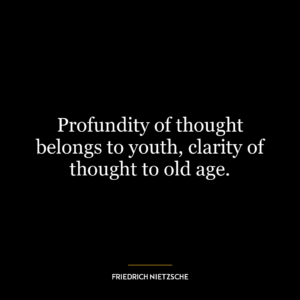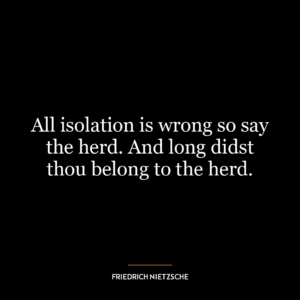The bite of conscience, like the bite of a dog into a stone, is a stupidity.
This quote compares the bite of conscience, or the feeling of guilt, to a dog biting into a stone, which is seen as a futile and unintelligent action. In essence, Nietzsche is suggesting that feeling guilty or remorseful is a pointless endeavor, just as it is pointless for a dog to bite a stone.
The depth of this quote lies in Nietzsche’s challenge to conventional wisdom. Traditionally, conscience is seen as a moral compass, guiding individuals to correct their wrongs. Nietzsche, however, suggests that such guilt or remorse is not only unproductive but also foolish. He implies that guilt does not change the past nor does it control the future, rendering it ineffective.
Applying this philosophy to personal development, one might argue that dwelling on past mistakes or feeling guilty about them is unproductive. Instead, acknowledging mistakes and learning from them, without letting guilt consume us, can lead to growth and development.
In today’s world, this idea is particularly relevant in the context of mental health. Often, individuals are burdened with guilt and regret over past actions, which can lead to stress, anxiety, and depression. Nietzsche’s philosophy suggests that instead of dwelling on these negative feelings, individuals should focus on learning from their mistakes and moving forward.
However, it’s important to note that this quote does not advocate for a lack of accountability. Recognizing one’s mistakes and taking responsibility for them is crucial. The emphasis is on the futility of guilt that doesn’t lead to positive change or growth.
In summary, Nietzsche’s quote encourages individuals to let go of unproductive guilt, learn from their mistakes, and focus on personal growth and future actions.















